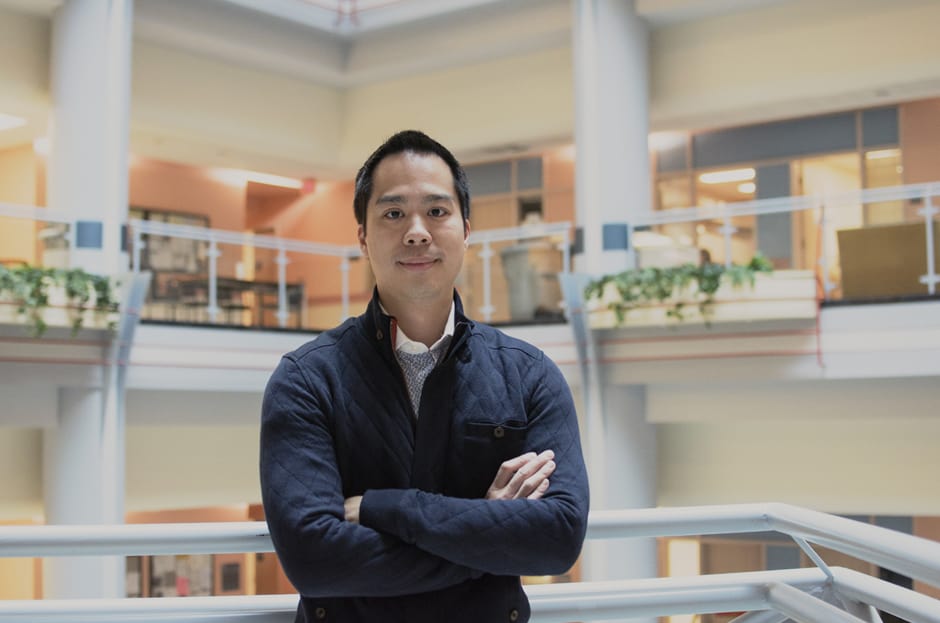It is a rare sight to see every single seat taken at a night lecture, but this is often the case for the introductory cellular biology lectures taught by Dr. Kenneth Yip. First and foremost a researcher in cancer drug discovery and translational genomics, Yip is also a favourite among science students for his clear lecturing style and advice to students in an effort to help them succeed.
In an interview with The Varsity, Yip shed light on his personal journey in the sciences, both as a student and a professor.
The Varsity: Why did you decide to pursue science as a career?
Kenneth Yip: When I was a student, the world was experiencing a number of exciting scientific breakthroughs and events (as it is now), especially in biology. Mammals were cloned, scientists were racing to sequence the human genome, and there was an explosion in biotechnology that was reshaping our understanding of human health and disease. I became captivated by how life works on a biological level, and I wanted to create and develop new ideas based on the existing foundation of scientific research to directly impact the world. This led me to begin work in “translational science”, where we try to translate basic scientific discoveries into direct patient health benefits — a very intellectually stimulating and rewarding field.
TV: Did you always know that you wanted to go into science?
KY: Definitely not. I had (and still have) a wide range of other interests. I think I had a different dream career every month of high school. Even in university, I contemplated a wide range of majors, ranging from philosophy to genetics.
TV: What kinds of struggles did you face when you were a science student yourself?
KY: I was a very stereotypical student. In first year, I had to adapt to a new city, [a] new school, and new social circles, all while trying to maintain high academic standards. The year had its highs and lows — probably the most stressful, yet [most] fun year of my life up until then. In third-[year] and fourth-year, I struggled balancing my studies with trying to have a social life… especially during study week.
TV: What is the focus of your research and why did you decide to pursue it?
KY: My research can be divided into cancer drug discovery (trying to develop new medications to treat various cancers) and translational genomics (using next-generation DNA and RNA sequencing to develop diagnostic tests). These are great fields for someone who wants to use the latest in basic science and biotechnology to try to impact healthcare. My dream has been to intellectually contribute to a new medication and/or medical test — it would be extremely rewarding to meet a patient who has benefited from my work.
TV: Are there research areas that you are passionate about that you have not yet explored in your work?
KY: I would love to get the chance to participate in work about the history, philosophy, and logic behind science and scientific discoveries. As well, having a bigger part in communicating science to the general public would be fantastic.
TV: What is your favorite thing about lecturing at U of T?
KY: My favorite thing about lecturing is the student interaction. Research can be slow and frustrating at times, but interacting with undergraduate students who are energetic, enthusiastic, and inquisitive often provides momentum for my own work.
TV: Many students love taking your classes and enjoy your lecturing style. What do you think is key to providing a good classroom experience for students? Or what do you do personally to create that experience for students?
KY: I guess I’ve just been modelling myself after the professors I enjoyed as a [u]niversity student. I was a student for a very, very long time, so I’ve seen a lot of great professors. At the University of Toronto, I’ve been trying to take bits and pieces of what seems to work from award-winning/great professors such as Melody Neumann, Michelle French, John Coleman, Sue Varmuza (whom I TA’d for), Jennifer Mitchell, Darrell Desveaux, Tony Harris, and Chris Garside. Getting input from experienced staff helps tremendously too (thank you Nyla Maharaj Cabrera).
TV: If you could give science students at U of T one piece of advice, what would it be?
KY: I guess this advice applies to non-science students as well: I would encourage students to put effort into meeting and making friends with people outside of their normal social circle. The University of Toronto environment has improved, but a lot of students don’t expand their social circle too much… it will make you more well-rounded to get to know and appreciate people who have different interests and views. In my experience, undergrad was the best time to do this.
This interview has been edited and condensed for clarity and length.


